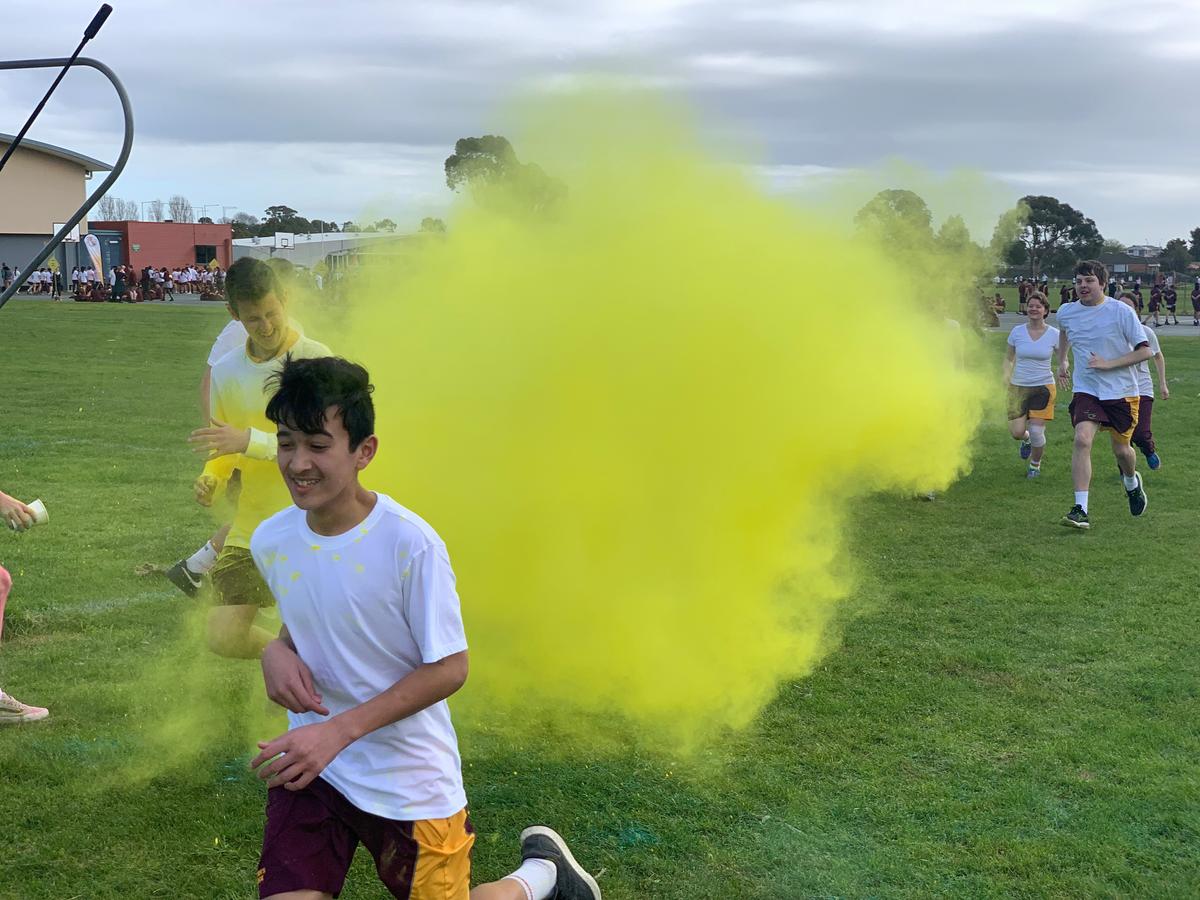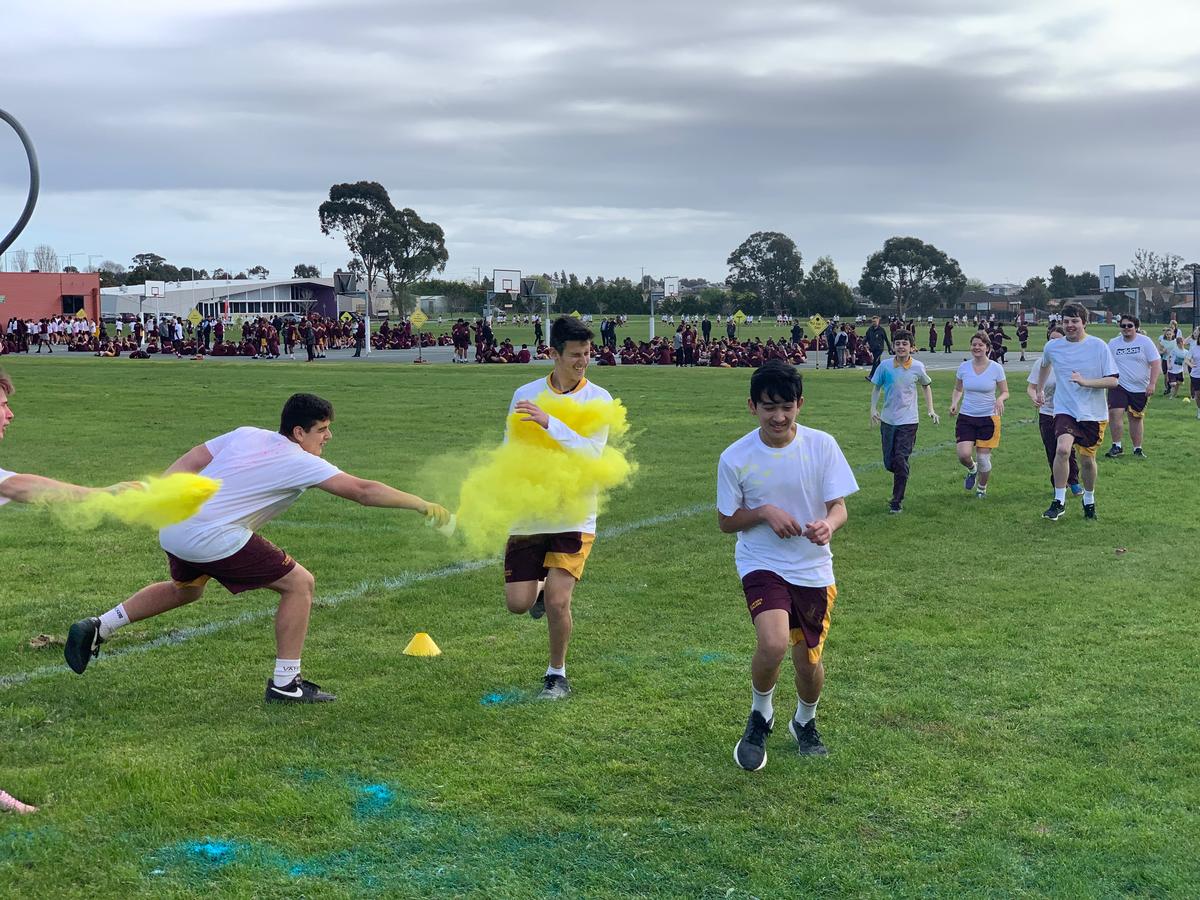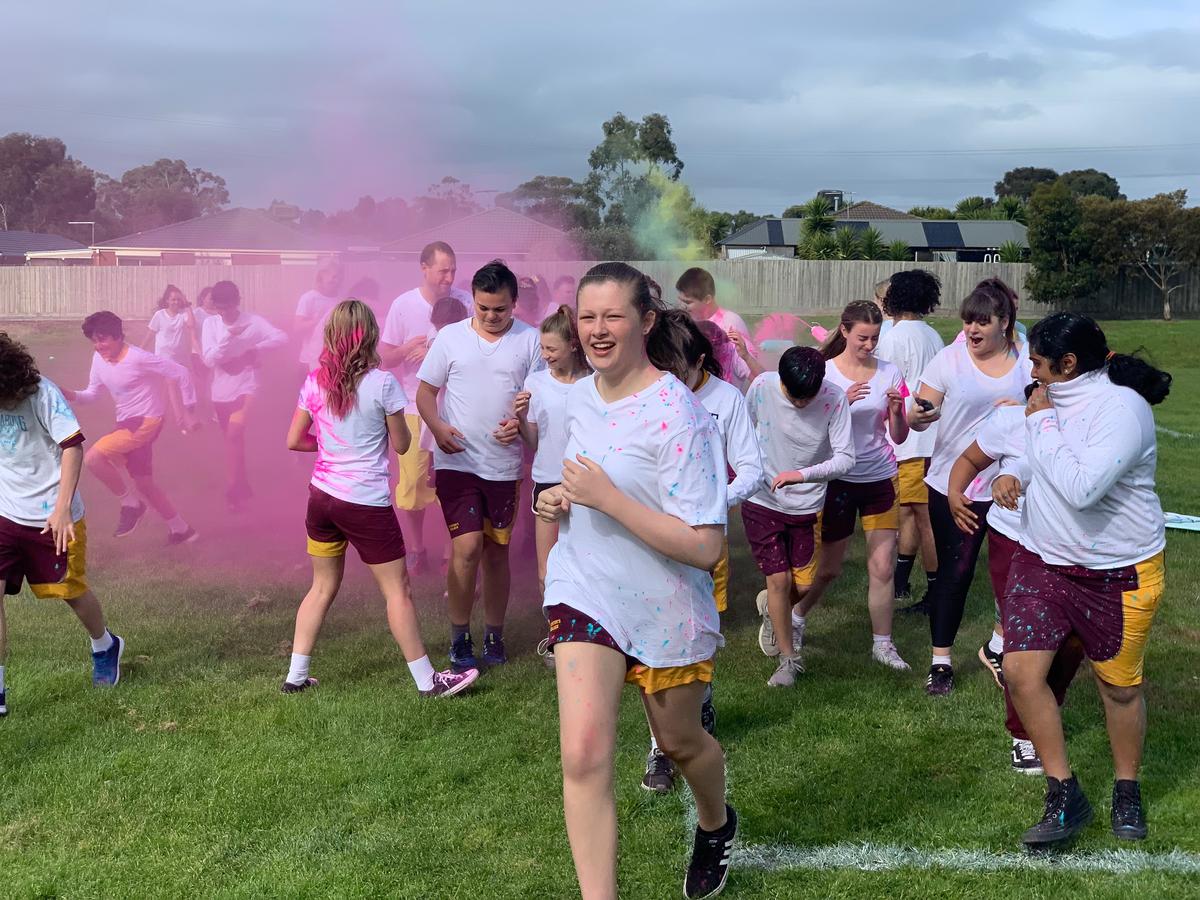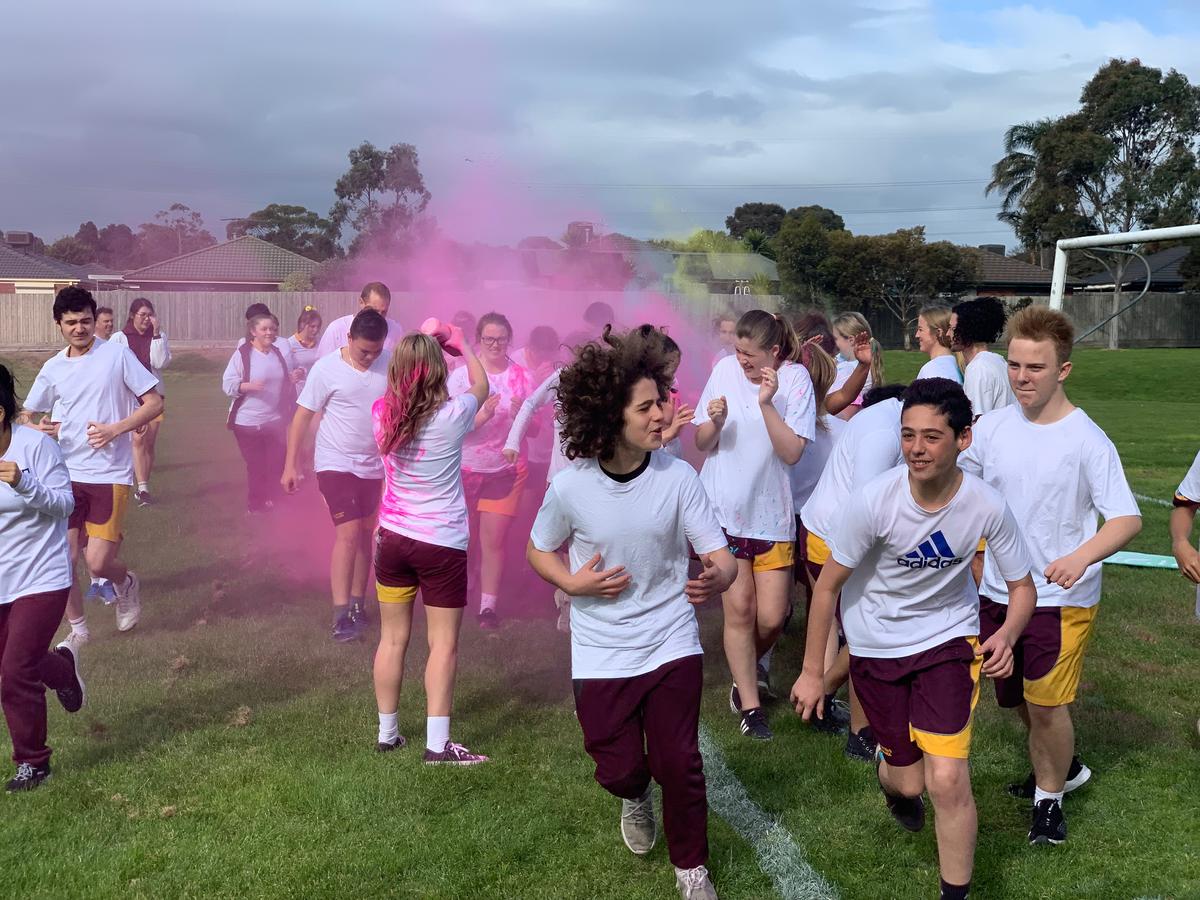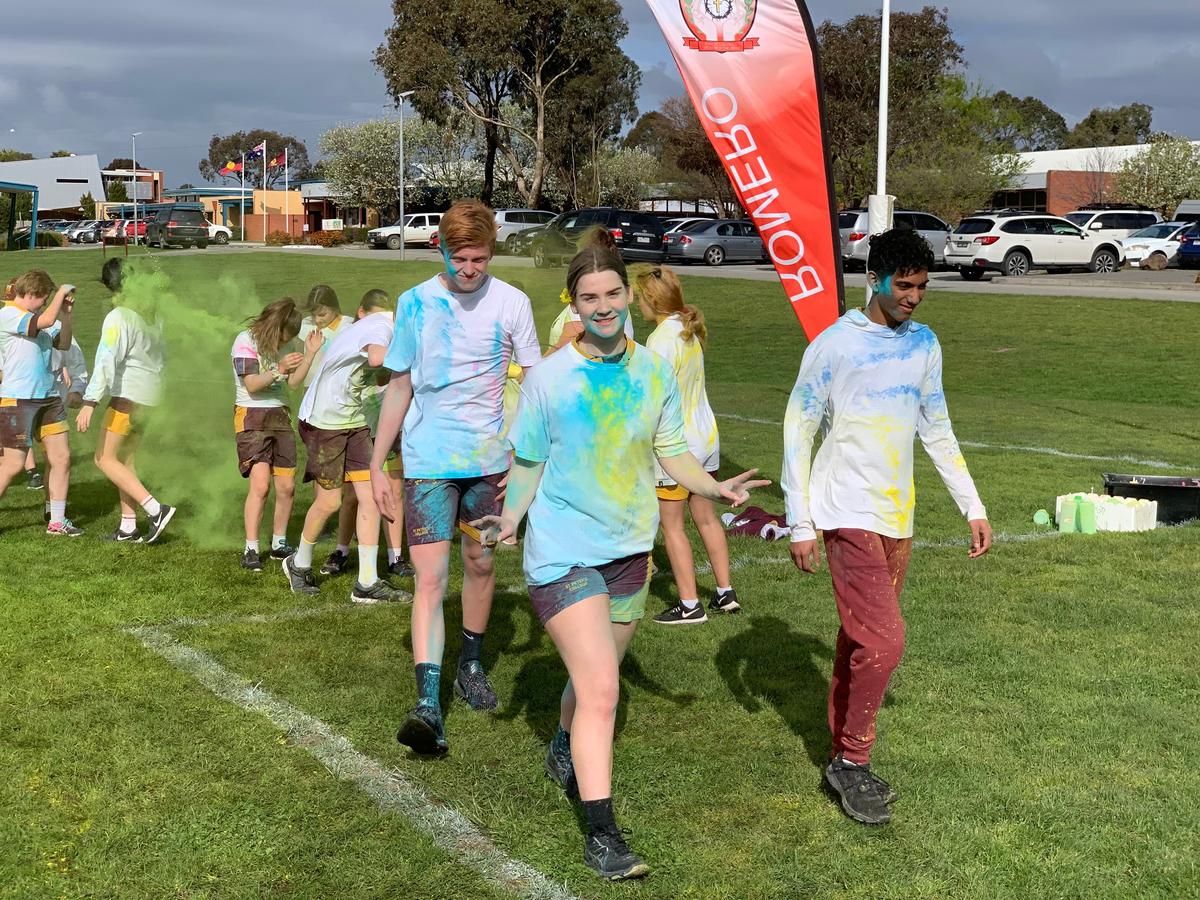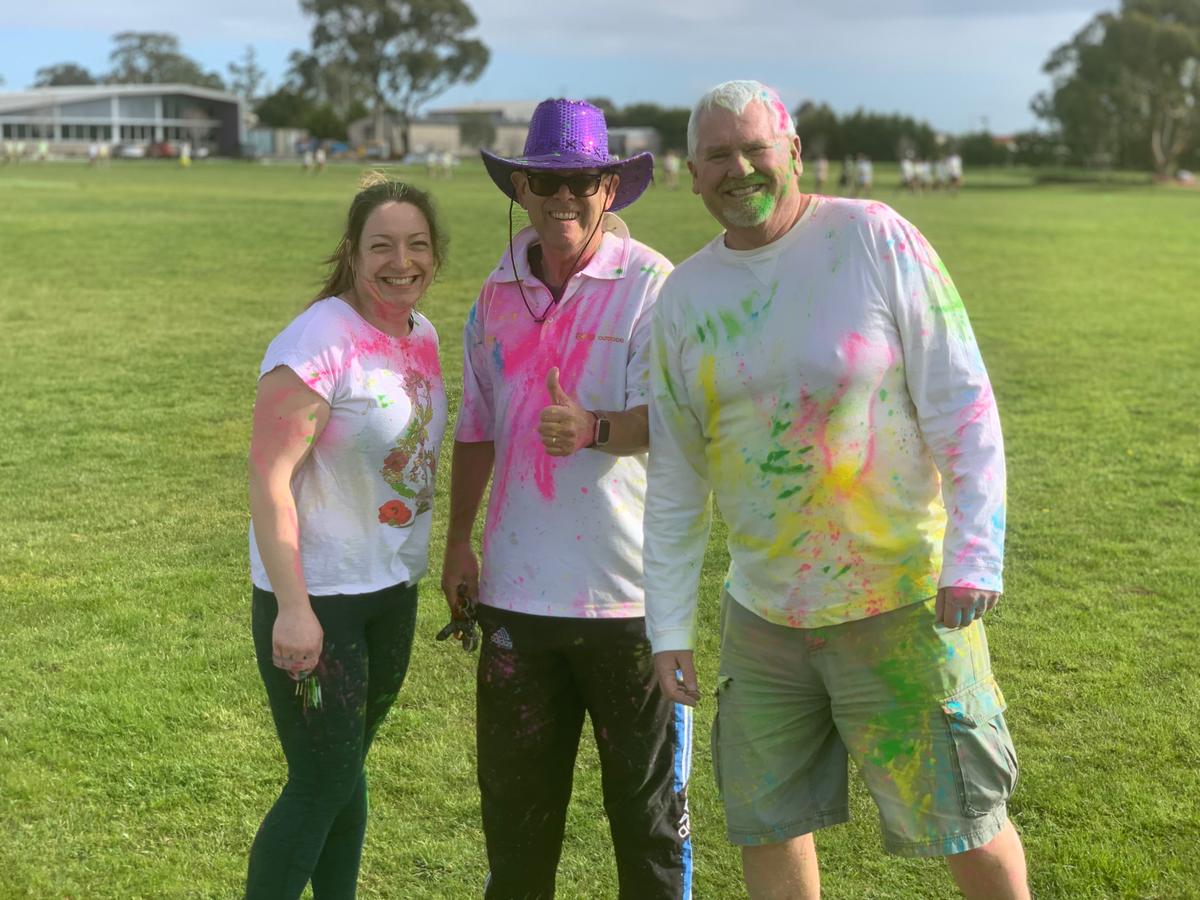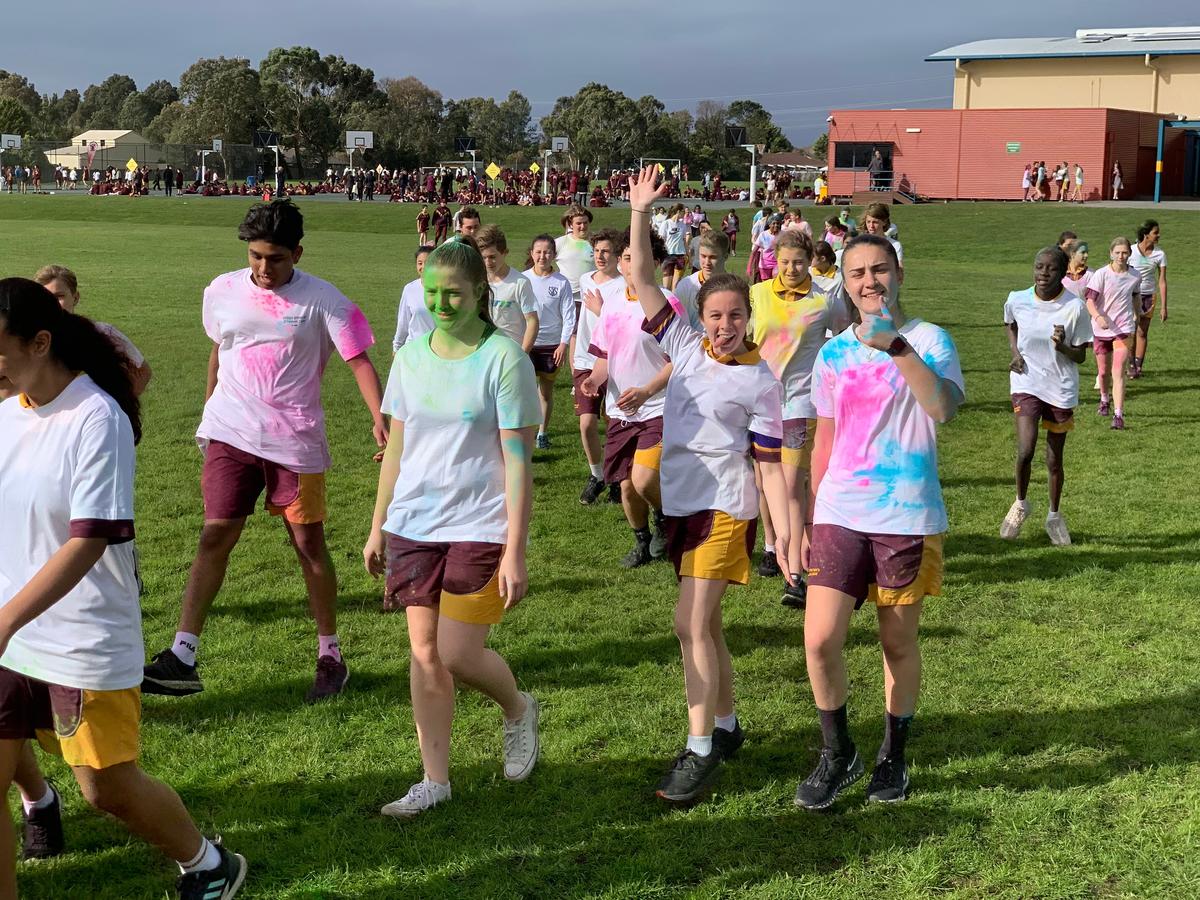From our Principal
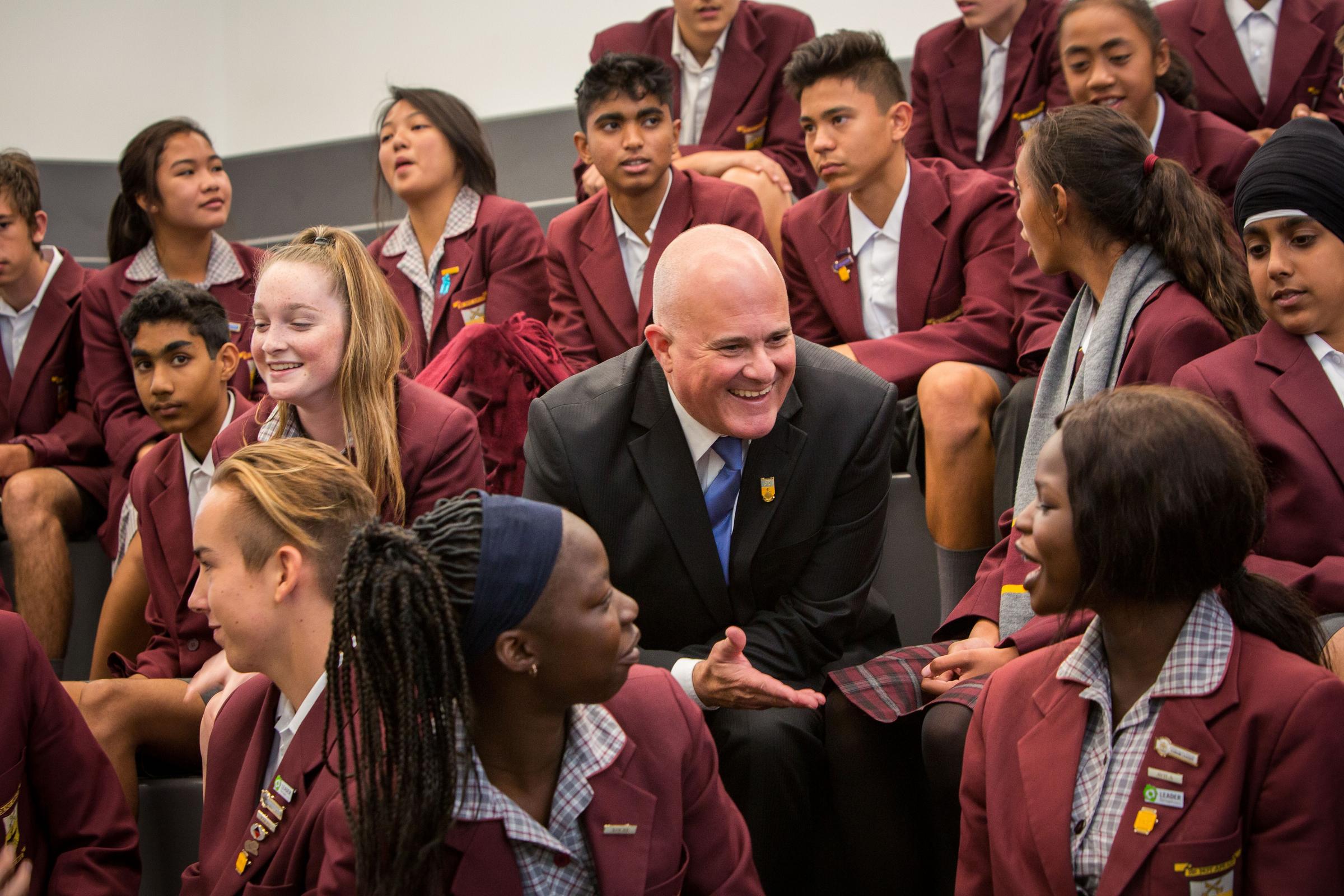
Dear Parents, Students and Friends,
We hope you enjoy the latest edition of the newsletter.
The VCAL and SRC have led the Colour Run on Thursday afternoon and it was a wonderful event. The more significant theme of the day however was around awareness raising of mental health through the banner of RUOK. The message of the day for students was threefold. Firstly, “We can all make a difference in the lives of those who might be struggling by having regular meaningful conversations about life's ups and downs.” Secondly, “If you feel like something’s not quite the same with someone you know – there’s something going on in their life or you notice a change in what they’re doing or saying - trust that gut instinct and take the time to ask them” - “Are you OK?” and finally, “By acting as ‘eyes and ears’ and reaching out to anyone who's going through a tough time we can show them they’re supported and encourage them to access help sooner.”
Beyond Blue statistics include:
- Around one in 35 young Australians aged 4-17 experience a depressive disorder.
- One in seven young Australians experience a mental health condition.
- One in fourteen young Australians (6.9%) aged 4-17 experienced an anxiety disorder in 2015. This is equivalent to approximately 278,000 young people.
- The number of deaths by suicide in young Australians is the highest it has been in 10 years
- Suicide is the biggest killer of young Australians and accounts for the deaths of more young people than car accidents
- Evidence suggests three in four adult mental health conditions emerge by age 24 and half by age 14
Mental Health is the number 1 health issue for young people today. At St. Peter’s College we strive to provide upstream measures to support young people and their mental well-being. Our focus, particularly on our Strive and Thrive program, the Positive behaviours themes and the House structure provide a comprehensive program designed to develop a toolkit of strategies which promote positive well-being. We continue to commit to best practice in supporting adolescent mental health and well-being. The message to our community, emphasised on Thursday of this week, but a suggested strategy each and every day of the year is to check-in and ask the following questions:
1. Ask RUOK, 2. Listen, 3. Encourage Action, 4. Check-in
National Child Protection Week
Last week was National Child Protection Week, culminating on Sunday where this was a focus in many parishes. The theme of 2019 has been, “kids do well when parents are supported”. The National Association for Prevention of Child Abuse and Neglect (NAPCAN) has focussed on research based evidence that “to raise thriving kids, parents need support to navigate life’s choppy waters”. NAPCAN has produced 7 top tips to prevent child abuse and promote Child Safety. I offer these below for all to consider. At St. Peter’s College we continue to strive to build a culture of Child Safety.
Tip 1: Celebrate fathers and family – which can come in many different forms, by getting everyone together – such as for a home cooked meal to connect with the people you love. Involve children in planning this too.
Tip 2: Be a friend to parents that you know – offer support and practical help, such as spending time with the children in your life to help give parents some time out.
Tip 3: Go to a parents meeting at your child’s school, talk to your child’s teacher about their development and well-being, participate in an activity at your community centre / library or get to know your neighbours.
Tip 4: Encourage a healthy activity with the children and young people in your life such as a walk, fun/run, bike ride or games night.
Tip 5: Talk about safety with your child, about what being unsafe might look and feel like at home, in the community, online or at school. Make plans about what to do if/when they feel unsafe. Especially encourage them to talk about what makes them feel safe and who they can talk to when they have worries. Talk about respectful relationships with your child and support this being taught at their school.
Tip 6: Explore the world from a child’s point of view and volunteer at your child’s school/child care or at their sports activity. Be a positive role model. Children and young people learn from the people that they spend time with, so make your influence positive.
Tip 7: Let your friend, child, or family member know you’re there for them. Ask children and young people in your life what activities they like doing and enjoy it with them.
Enjoy the week ahead.
Mr Chris Black
Principal


